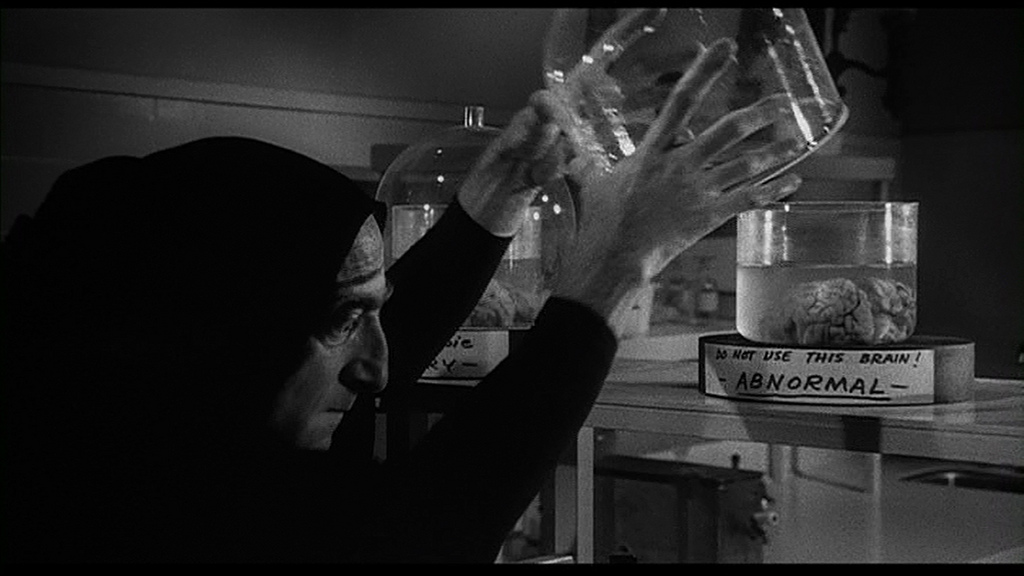In a classic scene from “Young Frankenstein,” Igor is dispatched to snatch from a laboratory the brain of a recently deceased genius as the final ingredient in Dr. Frankenstein’s reanimation project. Brought to life, however, the monster behaves in a deranged fashion, prompting Frankenstein to ask Igor to repeat the name on the jar from which the brain was retrieved.
Igor: “Abby someone.”
Frankenstein: “Abby someone? Abby who?”
Igor: “Abby Normal. Yes, I am almost sure it was Abby Normal.”
Frankenstein: “Are you telling me that I put an abnormal brain into a 7-foot-long, 54-inch-wide gorilla!!!”
Aside from the laughs it inspires, this scene is a reminder to me that the person I imagine myself to be is nothing more than the years of conditioned thinking emanating from a brain (note that I didn’t say “my” brain, just a brain).
Similar to Frankenstein’s monster, I stagger about this life responding to an endless cascade of thoughts boomeranging through the brain. Where do the thoughts originate? Why this thought and not that one? Who or what controls those thoughts since clearly I don’t – I can’t even tell you what will be cooking in my head 5 minutes from now.
In fact, even as I type these words other thoughts are continually popping in and out of my consciousness like fireflies on a summer night. Similarly, my heart beats away in my chest, my lungs respire, cells divide and die, and so on, all without a conscious thought on my part. So if I don’t control the thoughts and I don’t control the body, who or what am I?
Which brings me back to the destination to which all of my searching has led me: non-duality (monotheism to you religious types). Non-duality tasks us with repeatedly asking the simple question: “Who am I?” As made clear above, when I go searching I can’t find anyone there. There is no ghost in the machine, no great and mighty Oz behind the curtain. Which further begs the question, “Who is searching for ‘me’ in the first place?” If I don’t exist, then who in the world is asking these questions?
The awakened types will tell you it’s nothing more than your thoughts observing your thoughts, and that the path out of suffering, is to at last see that there has never been anyone doing any of this; that I and the universe around me are nothing more than projections of an organic brain that has convinced itself of itself and its separateness from everything around it. In a sense, the brain has eaten of the Tree of (Self) Knowledge and in so doing evicted itself from the Oneness from which it originated (and really never left). We suffer so long as we buy into the brain’s illusion of a self and a world.
The implications of this are so astounding it is a marvel that every human on the planet doesn’t come to a stop to really look at this much like Frankenstein’s monster did when he first gazed into a mirror and no doubt thought, “WTF?” I mean, if none of us truly exist – certainly not in the way our brains have instructed – then the entire edifice of human existence also is a fiction.
It’s so deliciously subtle the way our brains convince us of us. Initially there is a babbling baby soaking up a world. But this marvelously complicated, ultra-powerful brain begins to notice that all the other brains around it keep referring to “it” as if it is something separate and apart. In short order, the brain says, “Well hey, there must be something here. Henceforth I will know myself as ‘I'” and it’s all downhill from there.
Over the succeeding years, while nobody was watching (who is there to watch, after all?), the brain keeps reinforcing the belief in “I,” labeling the world, adopting this belief, trashing that one, and by adulthood the concept of “you” is pretty much in place. It never occurs to us to ask where all those thoughts and notions and ideas and beliefs and phobias and fears originated. Why should it? That would require your brain to inquire of itself.
Pretty “heady” stuff, eh?





I liked that one. One of my “est” instructors suggested that question too: “Where do thoughts come from?” We spent a lot of time examining the nature of the “mind” and “self” and the instructors pushed everyone to break out of thier “act” and transcend who they thought they are, and live “authentically.”
I love YOUNG FRANK. A classic film filled with metaphysical innuendos on life.
The brain’s wisdom is rarely as wise as Dear Abby. I agree with you, it tends toward, Abby-normal.
Here’s a nice quote from Caroline Myss’s latest, Defy Gravity P. 130.
“Pursue your own mysteries. Never run away from what you do not understand about yourself; that part of you does not evaporate just because you don’t want to look at it. What hou do not like or what you fear becomes a psychic free radical in your system.”
Also cool– on the same page “what shall I do this year that will teach me something new about myself?”
Whoa … brain freeze.